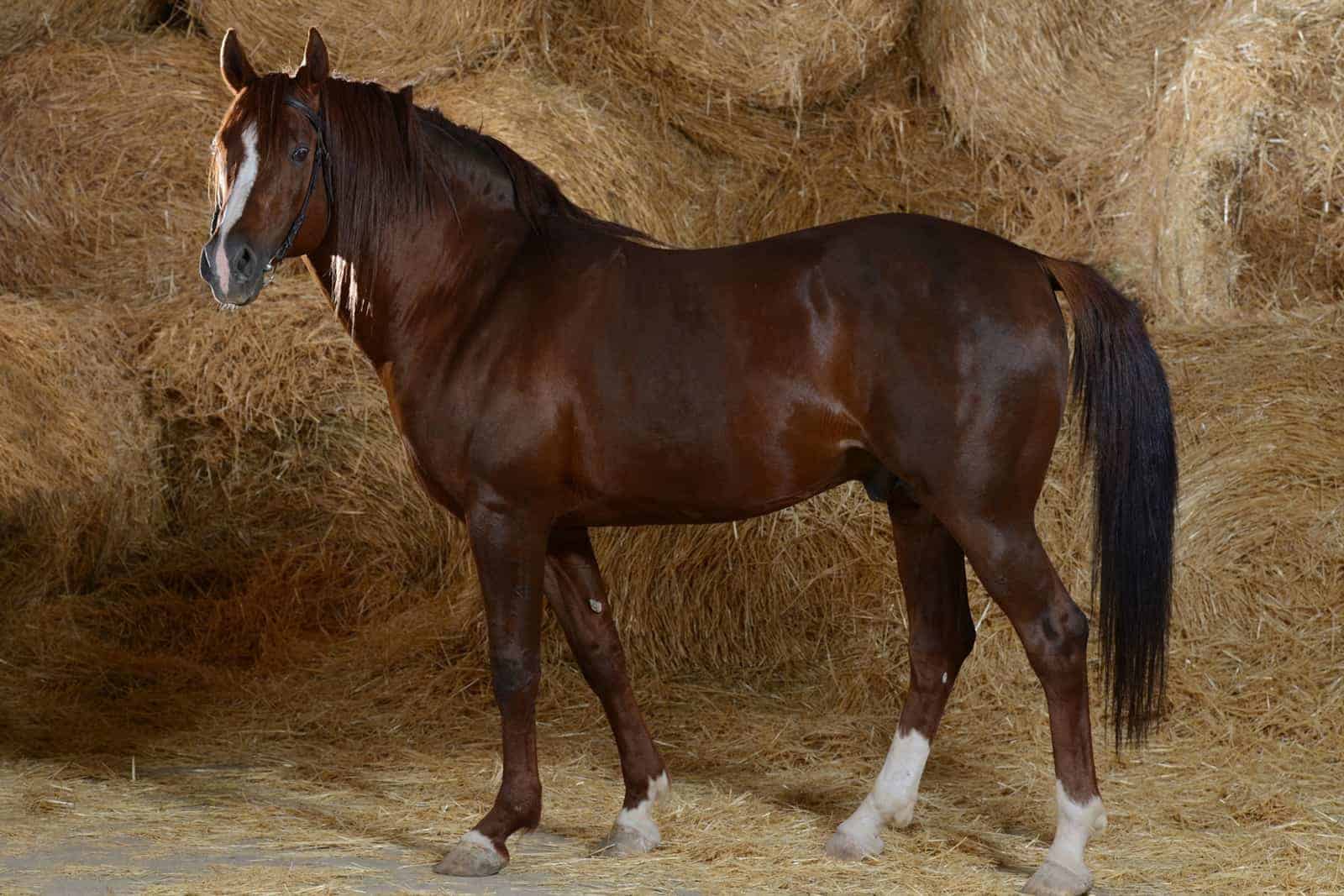Could a Supplement Help Reduce Horse Insulin Concentrations?

High circulating insulin concentrations can cause horses to develop laminitis, so any tool to reduce insulin concentrations could be valuable for reducing the risk of this painful hoof disease developing in certain horses. Researchers recently evaluated one potential option with encouraging results.
Research in humans has shown that a compound called resveratrol can improve insulin sensitivity. When combined with the amino acid leucine, it takes even less resveratrol to improve insulin sensitivity in rats. So Jane Manfredi, DVM, MS, PHD, Dipl. ACVS-LA, ACVSMR, and her team from Michigan State University (MSU) recently tested whether a supplement containing that combination could improve metabolic function in horses with equine metabolic syndrome (EMS, an endocrine disorder that can negatively affect insulin levels and lead to laminitis) and/or insulin dysregulation (ID, abnormal blood insulin levels).
Manfredi, assistant professor of pathobiology and diagnostic investigation at the MSU College of Veterinary Medicine, in East Lansing, presented the results at the 2018 American Association of Equine Practitioners Convention, held Dec. 1-5 in San Francisco, California
Create a free account with TheHorse.com to view this content.
TheHorse.com is home to thousands of free articles about horse health care. In order to access some of our exclusive free content, you must be signed into TheHorse.com.
Start your free account today!
Already have an account?
and continue reading.

Written by:
Clair Thunes, PhD
Related Articles
Stay on top of the most recent Horse Health news with















